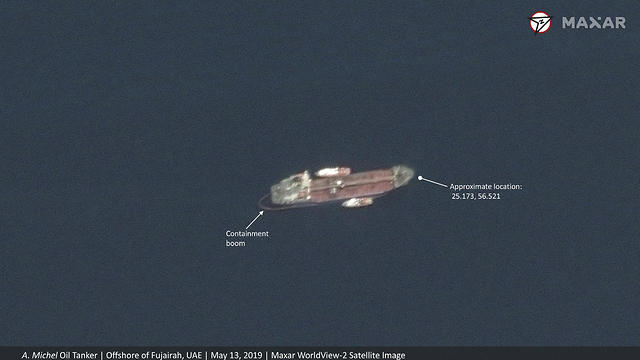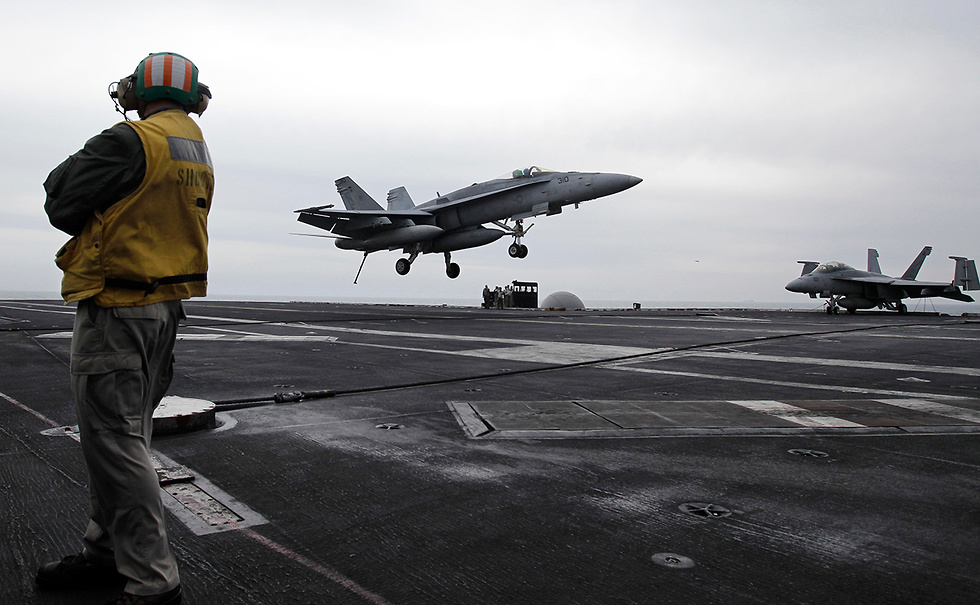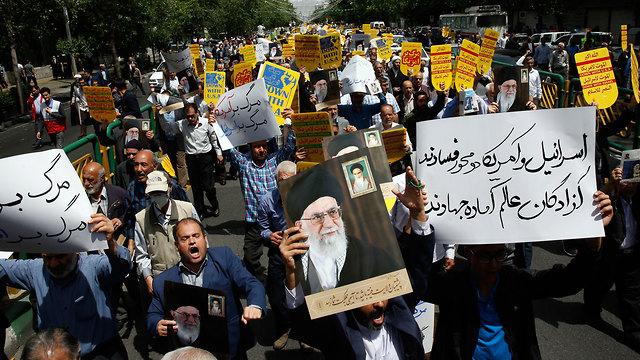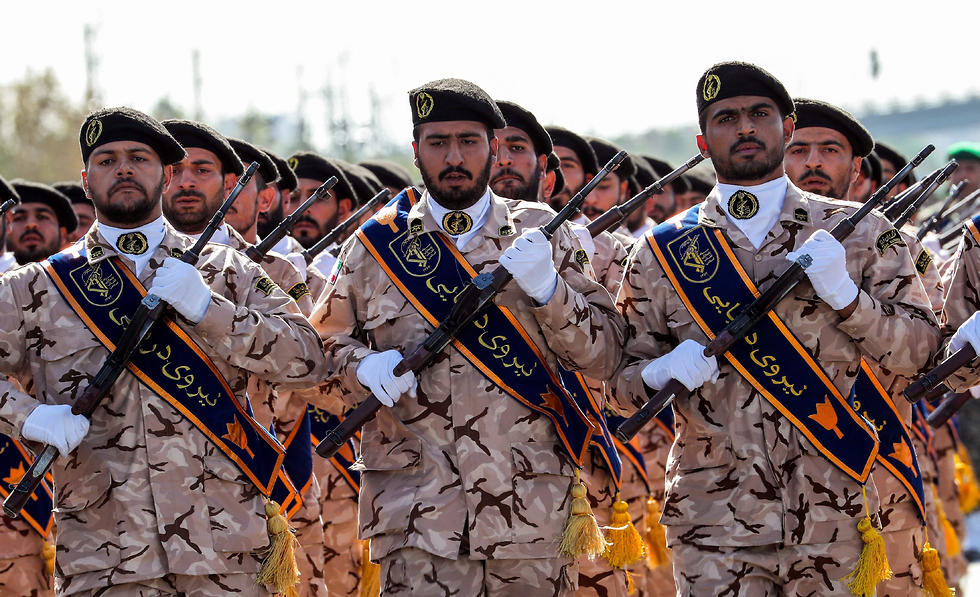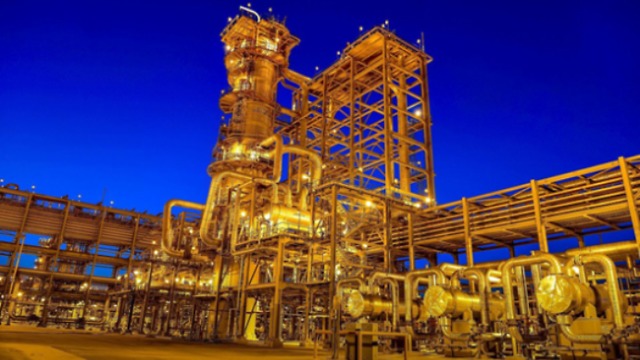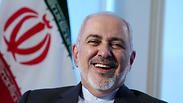
Persian Gulf tensions, unclear threats raise risks
Analysis: Iran backing away from the nuclear deal, USA adding sanctions and sending warships to the region; UAE, Saudis say ships and oil infrastructure targeted by sabotage; these events have the potential to affect everything from the price of gas to the fate of nations
Murky claims of sabotage to oil tankers off the coast of the United Arab Emirates. A drone attack on a pipeline in Saudi Arabia. A U.S. aircraft carrier strike group steaming toward an unspecified threat.
The events roiling the Persian Gulf in recent days have the potential to affect everything from the price of a gallon of gas to the fate of nations.
And for those feeling confused by it all, don't worry: Everyone else seems to be puzzled too, only raising the possibility of a miscalculation.
Just as what sparked the rapid series of market-moving events remains unclear; so does the reason for the White House deploying warships and B-52 bombers to the region.
Days later, Iran marked the anniversary of President Donald Trump withdrawing the U.S. from Tehran's nuclear deal with world powers by announcing it also would begin backing away from the accord. It set a 60-day deadline for Europe to offer it a better deal before it would begin enriching uranium to higher levels that the West fears could allow it to obtain atomic bombs.
"We are very worried about the risk of a conflict happening by accident with an escalation that is unintended really on either side but ends with some kind of conflict," British Foreign Secretary Jeremy Hunt said recently.
The main threat Hunt referred to was any confrontation between the U.S. and Iran. This has been brewing ever since Trump, who campaigned on tearing up Iran's 2015 nuclear deal, came to office.
After pulling out of the deal last year, the U.S. began a maximalist pressure campaign against Iran. It re-imposed sanctions. It created new ones, for the first time naming a part of a country's armed forces a terrorist organization and squeezing Iran by threatening sanctions on any nation importing its crude oil.
For a year, Iran negotiated with European signatories to the deal to find a way to allow it to continue its trading. Those efforts have yet to bear fruit.
Meanwhile, Trump's national security John Bolton, who gave paid speeches to an Iranian exile group promising that Iran's government would be overthrown, issued the statement announcing the aircraft carrier would be deployed.
The deployment sends "a clear and unmistakable message to the Iranian regime that any attack on United States interests or on those of our allies will be met with unrelenting force," Bolton said.
Iran announced May 8 it would back away from the nuclear deal. Four days later, on Sunday, everything suddenly changed.
A pro-Iran Lebanese satellite channel falsely claimed the Emirati port of Fujairah was ablaze after explosions, reports quickly carried by Iranian state media and semi-official outlets. Hours later, the United Arab Emirates issued a vague statement alleging four ships "were subjected to sabotage operations."
By Monday, it was clear something happened. One of the four oil tankers affected, a Norwegian-flagged ship, clearly had a hole punched through its hull. A U.S. official, speaking on condition of anonymity to discuss an ongoing investigation, said the other three did as well.
But Emirati and U.S. officials refused to speak on record to journalists. Satellite images obtained by The Associated Press later showed no visible major damage to the vessels, which included two Saudi tankers and an Emirati vessel.
On Tuesday, there still were no clear answers but many questions. Where did the Lebanese channel get its information about the explosions? What damaged the ships? And why won't anyone identify suspects involved in the alleged sabotage?
Suspicion, but not publicly verifiable evidence, has fallen on nearby Iran. The Shiite power has an incredibly tense relationship with Sunni-ruled Saudi Arabia and the UAE.
Trump told reporters he would "absolutely" be willing to send troops to the Middle East, but that he's not planned for that and hopefully won't have to plan for that. In Tehran, Iran's Supreme Leader Ayatollah Ali Khamenei cautioned: "Neither we, nor them, is seeking war. They know that it is not to their benefit."
Still, Iran has been threatening to close off the Strait of Hormuz if it can't sell its own oil on the global market. The strait is the narrow mouth of the Persian Gulf through which a third of all oil traded at sea passes. Additionally, over 30% of the world's liquefied natural gas trade also travels through it.
The UAE is developing Fujairah with an eye to possibly avoid having to send crude oil through the Strait of Hormuz. Now suddenly, Fujairah is a target.
On Tuesday, a pipeline in Saudi Arabia that allows it to likewise avoid the strait became a target as well. Yemen's Houthi rebels, with whom Saudi Arabia and the UAE have been fighting a bloody war since March 2015, launched a drone attack on the East-West pipeline, which carries nearly 5 million barrels of crude oil a day to the Red Sea. The kingdom shut down the pipeline in response, causing a spike in global oil prices.
Such attacks routinely cause higher global oil prices, which mean profits for producers and higher prices for consumers. But threats to the global oil market in the Persian Gulf also have been a U.S. national security priority since 1980.
The U.S. fought the Gulf War in 1991 to push Iraqi dictator Saddam Hussein's forces out of Kuwait, a major OPEC member. That war gave birth to the vast network of military bases the U.S. now has around the Persian Gulf, bases that Iran regards warily as the USS Abraham Lincoln heads toward the Strait of Hormuz. B-52 bombers from Louisiana already are flying missions in the region.
"Iran could actually view some of this as being a potential buildup for some type of offensive action," said Becca Wasser, a Washington-based RAND Corp. analyst specializing in Gulf security. "It raises the risk of accidental escalation. Because the U.S. and Iran don't have clear lines of communication at the moment, everything can be perceived in a very different light than one side is intending."
She added: "Something that would usually be a smaller issue could bloom into something much larger and much-more serious."










